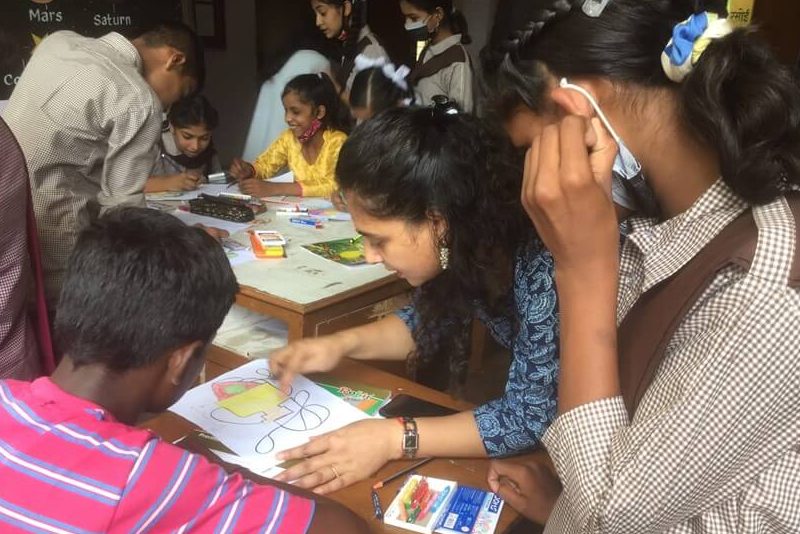On the flip side of the pandemic, the world has learnt to live in the moment. We hence find that the need and appetite for art has spiked in the face of the adverse condition, evocatively called, ‘pandemic fatigue’. Instead, what the world is witnessing is an upswing in the urge to re-engage, express, cope, heal and break out of pervasive gloom and dismay.
The COVID-19 pandemic brought in a complex array of challenges which, among other issues, had mental health repercussions for everyone – including, particularly, children and adolescents (UNICEF) whom it affected in an overwhelming way. Their lives, woven around schools and education, were disrupted. Negativity took over, of course, but even more debilitating was the fact that the virus not just curtailed, it brushed aside all the means of social engagement. It is hard to say whether or not, or how much, the looming uncertainty, combined with increased online activity as the one source of motivation (especially towards the end of the pandemic) available to them, could have reduced in any significant measure the overall stress that was contributing to deep levels of loneliness, anxiety, and depression.
‘Saahas Kala-Khoj’ is a project of Saahas Foundation, which is making an attempt to build confidence amongst children and adolescents, whose lives have been affected by the pandemic.
The project also focuses on other socio-economically marginalised segments of our people, including those with disabilities. It aims to help children discover and develop confidence in their own abilities through engagement with art as a process in developing self-esteem and sharpening aptitude for multisensory as well as social-emotional skills.
